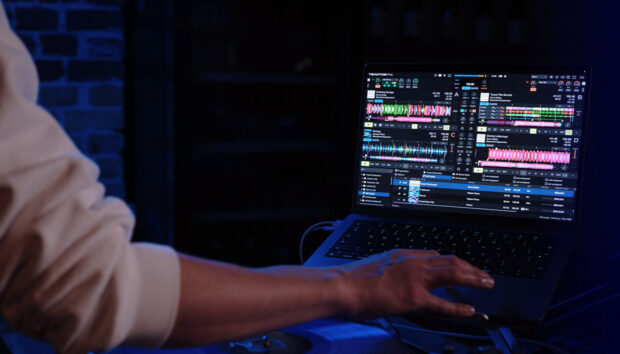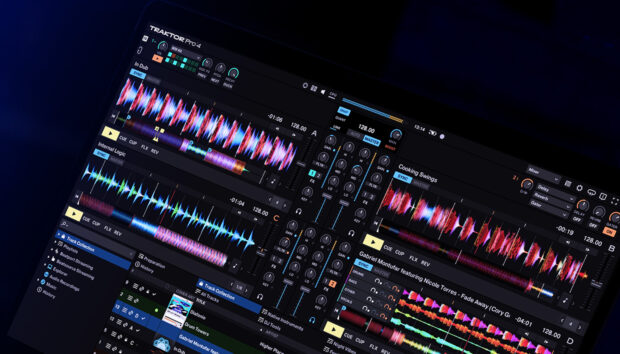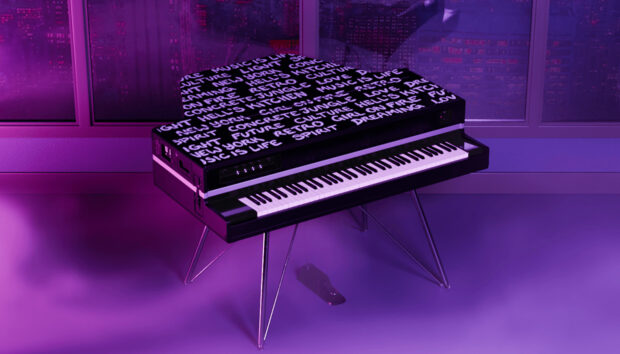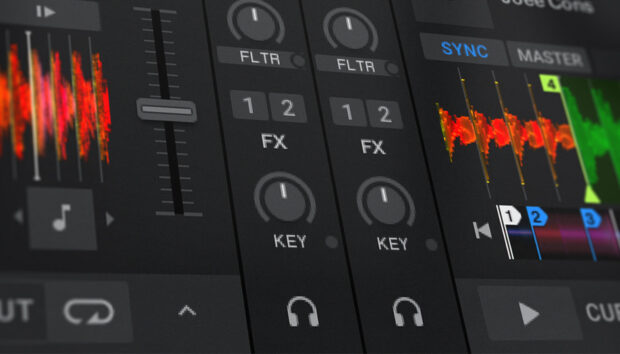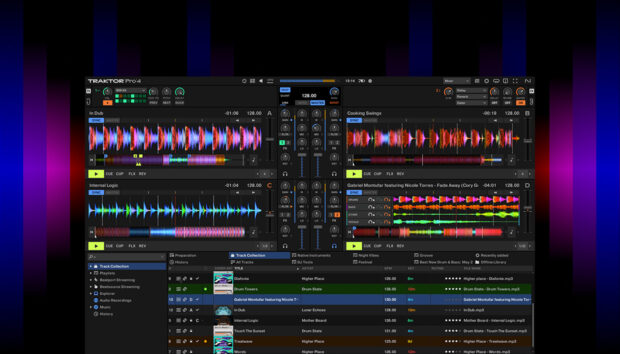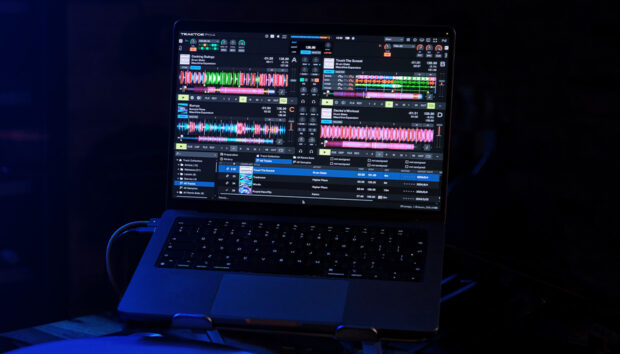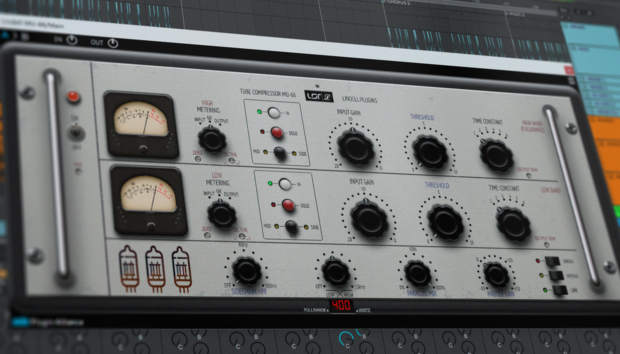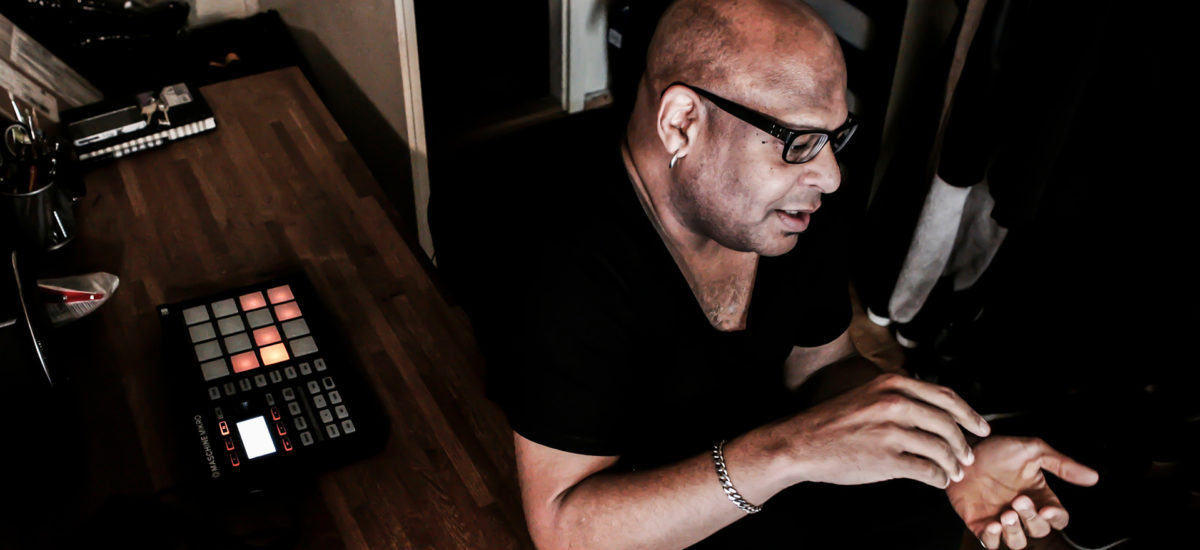
Known as Detroit Rocket Science, as well as DJ T-1000, Alan Oldham is an artist that looks ahead. His art and music follow themes of futurism and change, while his visual aesthetic is well-documented, and has helped define a generation of U.S. and European electronic dance music. Talking to Native Instruments from his Berlin studio, Oldham discusses his move to a new country and how it coincided with him changing his approach to DJing and production.
What was the transition like for you when you moved to Berlin?
In the U.S. I was living in a vacuum. People either didn’t take the time to check out what I was doing, or when they did, nobody cared. Here, people are excited to hear my music and look at my art, and it inspires me to do better work. In terms of gear, I was using a lot of hardware in the U.S. but I couldn’t bring it with me, so I was looking for a solution. I tried a number of other pieces of software but I somehow wasn’t getting it. And then I got a hold of a Maschine Mikro. The first things I liked were the pads and the interface: it’s simple and the output is professional. It invites you to play. The visual and tactile feedback is intuitive, and helps my workflow. In the U.S. I would do a live mix-down when I finished a track, and I can do it with Maschine just as easily. It has a simple learning curve and after a short period of time I was up and running making tracks.
What did your previous studio consist of?
Korg Prophecy
Korg Karma
Korg Kaoss Pad (First generation)
Novation Drum Station
Novation Bass Station
Roland R-8
Roland D-50
Roland SH-101
EMU Orbit
Behringer 24-channel mixer with onboard FX
Alesis Micron
Alesis MMT-8 Sequencer
The EMU rack modules Orbit, Planet Phatt, Extreme Lead, and Carnival are from the late 90s and sounded amazing. All of the tribal and latin percussion in the Purpose Maker records from Jeff Mills utilized the Carnival module. You can still buy them on eBay.
Having changed your studio set-up, what’s been the main difference for you?
With Maschine I’m not chasing short circuits, hums, hissing, or worrying about loose output jacks. And for all that gear, I could never get it to sound as good as I would’ve liked. The stuff I’m making now sounds more professional. I finally got away from hardware, now that the kids are bringing it back. I’m not sure why that is. I guess the flashing lights look better on social media, and you can look cool twisting knobs.
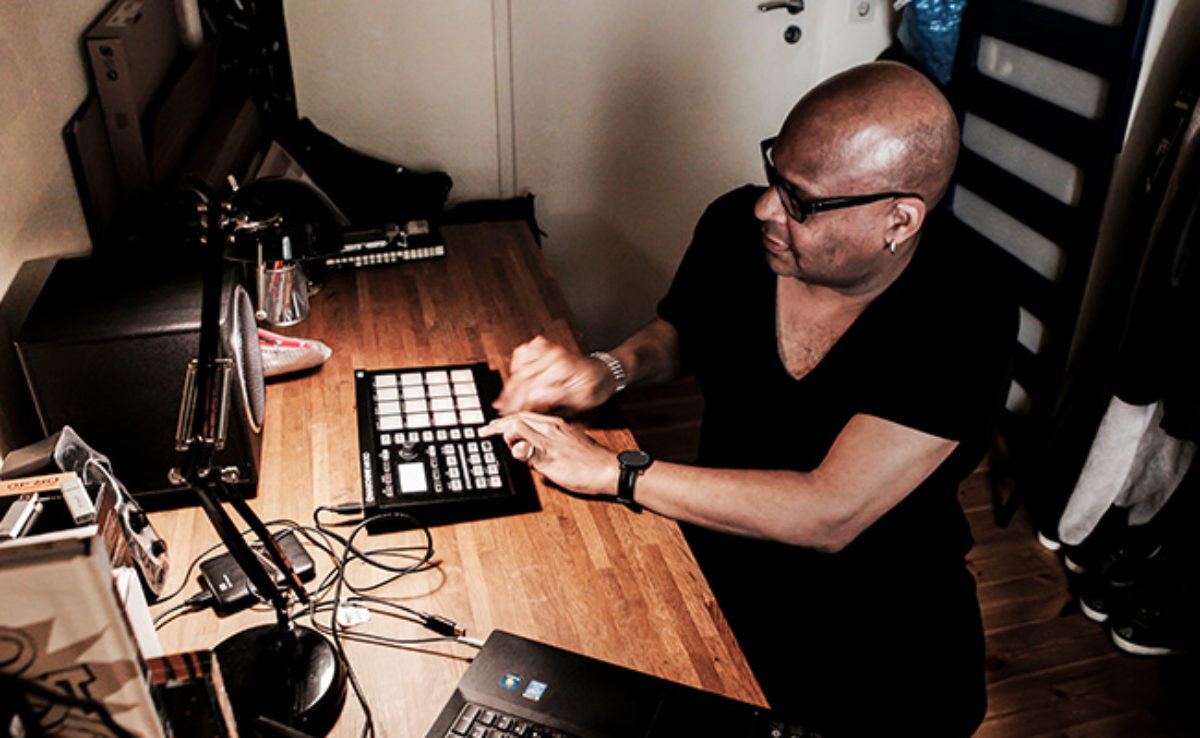
Do you feel like your time with Underground Resistance (UR) is still an influence, or has your approach changed?
It still has an impact, the UR philosophy is the Detroit philosophy.
…which is?
Resources are limited, do what you can with what you have.
Do you see that as a negative or a positive?
Limitations are positive because that’s where my creativity comes from. During my involvement with UR, there were a lot of European producers making tracks with thousands of dollars’ worth of gear. At the same time, Robert Hood and I were making techno with the essentials, which could be described as ‘minimal’. In the early 00s, European minimal became its own aesthetic, but it was more a stylistic choice and not out of necessity. My version of this sound is more in line with functional DJ tracks that are meant to be layered into a three-deck mix.
With a minimal style of music with fewer elements, I assume selecting or shaping each individual sound becomes far more important. How do you usually go about starting a track?
Lead sounds can help get ideas flowing. For instance, I am working on a dub techno track right now, so I simply found a sample that acts as a melody and then built everything else around it. One great thing about the user interface of MASCHINE is that I can grab a sound from anywhere, sample it, and right then and there use it in my project.
How would you rate the sampling quality?
It’s very good, but the quality will only be as good as the source, so I try to keep that in mind, as it’s a one-to-one conversion.
A recurring theme in Detroit techno is futurism, and what that will look and sound like. Would you say there is a modern trend toward creating the classic Detroit techno sound?
I make what I feel and let the future decide. When I switched to Traktor from vinyl, I got a lot of backlash. People would say, “Man you’re from Detroit, that’s not the way we do it, it isn’t classic.” I’m not an old-school jukebox playing tracks from thirty years ago! Another reason I switched is that a lot of clubs weren’t equipped for vinyl, and the people giving me a hard time didn’t see the problem I was having every night I was playing. There is a certain fetishisation of either actual old-school gear, or new modules emulating old gear that, while they have their place, can get in the way of progress and the search for unheard sounds. In other words techno is retrograde.
I really enjoy using new technology because as a long time techno veteran, new developments keep me excited and engaged
Can you elaborate on your TRAKTOR setup. Is it TRAKTOR Scratch, or do you use controllers?
I use the Native Instruments X1 and F1 controllers. And two decks is all it takes to crush a room.
What is the advantage of using TRAKTOR?
I have two different DJ sets that I play depending on the venue. I have the old-school, or ‘classic’ vinyl sound, that is more akin to the 90s banging, jacking style, and I have my modern Traktor set that represents what I am producing and DJing today. When I started to DJ, the harder style that was prevalent in clubs like Tresor translated to almost every venue across the world. Now, that is not so much the case. The tastes of clubs and crowds have changed, so I change with it, all the while staying true to my sound. I specifically like using Traktor for slower sets, as it’s somehow smoother. I really enjoy using new technology because I’m a long-time techno veteran and new developments keep me excited and engaged.
What do you say to young producers, buying certain hardware looking to sound like their favorite producers?
On the one hand, people want to make their own version of what they like, so they will buy the tools to do it. I don’t fault that because I like to make my own versions of tracks I enjoy. On the other hand you can make an acid track, for example, with almost anything so it doesn’t have to be a 303. Fundamentalism is problematic in any way, shape, or form.
Since you have been around for a long time, do you feel pressure to fulfil certain expectations because of your history with UR, or time in Detroit?
Especially as a black artist, we are the equivalent of the old blues players, the new Mississippi Delta. They don’t want to ‘go electric’, and sometimes this industry wants to put me, and others like me, in that box. Questions come up like: “How come you’re not DJing with vinyl?”, or “Why aren’t you playing the same style you played 25 years ago?”. That’s another aspect of fundamentalism that I don’t prescribe to. I like to mix it up and try out different things to keep myself going. It’s easy to stay in one corner and keep doing the same thing over and over, and that isn’t who I am. Whether I am working on tracks with Maschine, creating my art, or DJing, I want to consistently push myself and my art so I don’t become complacent. I see that all too often in the world and I hope that I can come along, wherever I am, and shake things up.
photo credits: Eva Fredrichs








